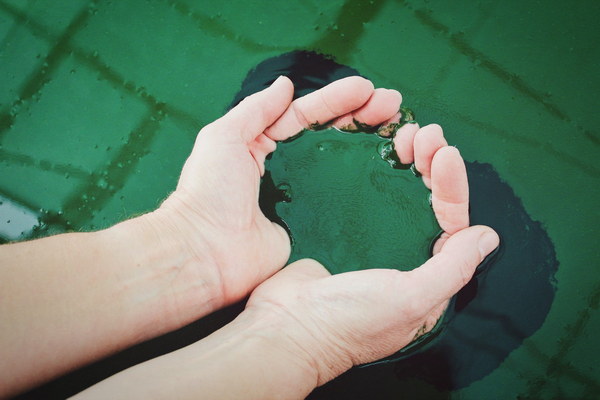Easing Gastroenteritis A Comprehensive Guide to Body Recovery
Gastroenteritis, often referred to as stomach flu, is a common illness that affects the stomach and intestines, causing symptoms such as nausea, vomiting, diarrhea, and abdominal pain. While this condition can be quite uncomfortable, there are various ways to manage and recover from it. In this article, we will discuss the causes of gastroenteritis and provide a comprehensive guide to help you restore your body to its optimal state.
Understanding Gastroenteritis
Gastroenteritis can be caused by various factors, including viruses, bacteria, parasites, and even certain medications. The most common causes are norovirus, rotavirus, and Escherichia coli (E. coli). It is essential to identify the cause of your gastroenteritis to determine the best course of treatment.
Symptoms of Gastroenteritis
Symptoms of gastroenteritis typically develop within 1 to 3 days after exposure to the causative agent and can last from a few days to several weeks. Common symptoms include:
- Nausea and vomiting
- Diarrhea
- Abdominal pain
- Fever

- Loss of appetite
- Headache
- Weakness
Recovery from Gastroenteritis: A Step-by-Step Guide
1. Hydration is Key
One of the most critical aspects of recovering from gastroenteritis is maintaining adequate hydration. Dehydration is a common complication of gastroenteritis, as vomiting and diarrhea can cause the body to lose fluids and electrolytes rapidly. To combat dehydration, drink plenty of fluids such as water, clear broths, and oral rehydration solutions. Avoid caffeine and alcohol, as they can further dehydrate the body.
2. Eat Small, Frequent Meals
As your appetite returns, start by eating small, bland meals. Foods that are easy on the stomach include bananas, rice, applesauce, and toast (BRAT diet). These foods are low in fat and fiber, which can be difficult to digest when your digestive system is compromised. Gradually reintroduce more substantial foods as your body tolerates them.
3. Rest and Recovery
Allow your body to rest and recover. While it may be tempting to resume your regular activities, pushing yourself too hard can prolong your recovery. Get plenty of sleep and avoid strenuous exercise until you feel fully recovered.
4. Manage Symptoms
Over-the-counter medications can help manage some of the symptoms of gastroenteritis. For nausea, consider taking an antihistamine or an antiemetic. To relieve diarrhea, you can use an antidiarrheal medication. However, consult your healthcare provider before taking any medication, as some may worsen dehydration or prolong recovery.
5. Practice Good Hygiene
To prevent the spread of gastroenteritis, practice good hygiene. Wash your hands frequently with soap and water, especially after using the bathroom and before eating. Disinfect surfaces that may have been contaminated, such as toilet seats, kitchen counters, and doorknobs.
6. Seek Medical Attention If Necessary
If you experience symptoms that are severe or persistent, or if you have a weakened immune system, it is essential to seek medical attention. In some cases, gastroenteritis can lead to serious complications, such as dehydration, electrolyte imbalances, and kidney damage.
Preventing Gastroenteritis
Preventing gastroenteritis involves taking steps to minimize your exposure to the causative agents. Here are some tips to help you reduce your risk:
- Wash your hands frequently, especially after using the bathroom, before eating, and after handling raw foods.
- Avoid consuming contaminated food and water.
- Cook meats and eggs thoroughly.
- Keep your kitchen and dining areas clean.
- Practice good hygiene, especially when traveling to countries with high rates of gastrointestinal infections.
In conclusion, gastroenteritis can be a challenging illness, but with proper care and management, you can recover and return to your normal activities. By following the steps outlined in this article, you can help your body heal and reduce your risk of future infections. Remember to seek medical attention if your symptoms are severe or if you have concerns about your recovery.









